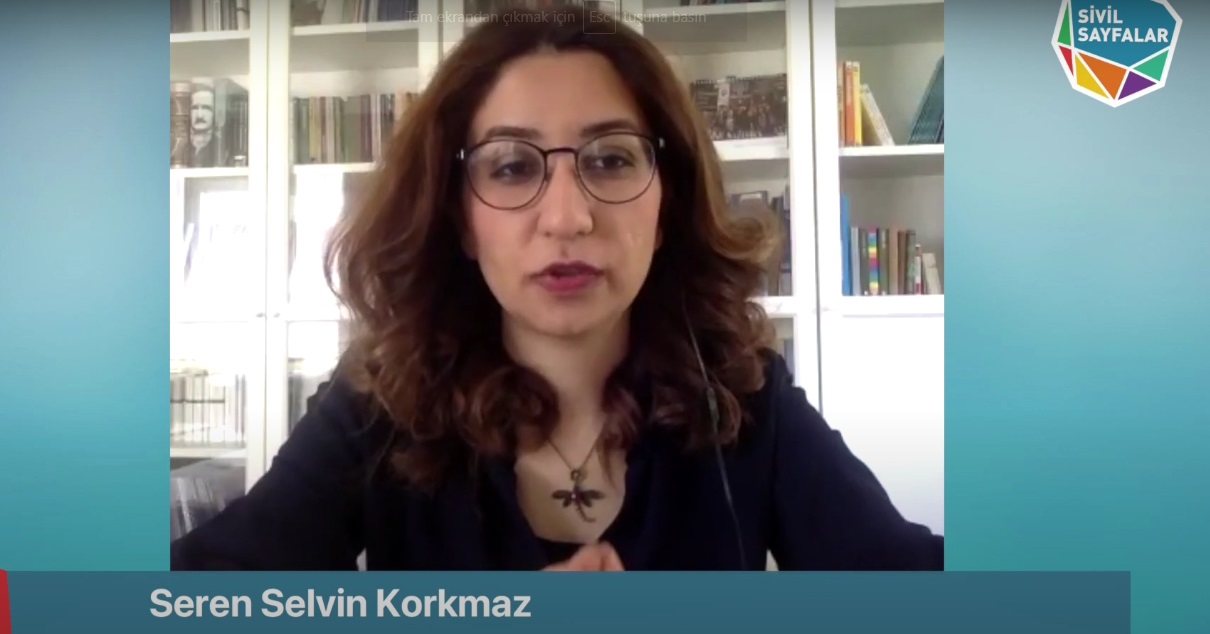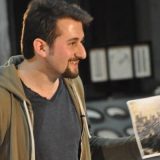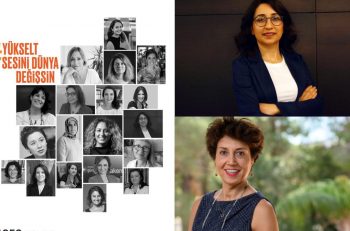“Civic Space Should Be Inclusive And Expansive”

The general director of Istanbul Political Research Institute (IstanPol) Seren Selvin Korkmaz, made an observation that the civic space has turned into ‘echo chambers’ and says: “However, what we call the civil space should be an inclusive and expansive area both on the basis of advocacy and policy making.”
We’ve talked to Seren Selvin Korkmaz, the General Director of Istanbul Political Research Institute and political scientist, about the current situation in the civic space and how it will expand, through the experience of IstanPol. According to Korkmaz, the expansion of the civic space is directly related to getting out of the echo chambers.
What kind of studies does Istanbul Political Research Institute (IstanPol) do?
IstanPol was founded in 2018 but in fact our studies go way back. We have been working together as a team for about six years.
We are an institution that operates in the fields of democratization, foreign policy as well as humanitarian and social development and that produces data-based policy recommendations. The main concern of IstanPol is to identify the most fundamental problems of Turkey, firstly.
Secondly, to present policy recommendations to policy makers regarding the solution of these problems.
How would the civic space expand based on IstanPol’s experience?
First of all, I think institutions like IstanPol can be a bridge between civil society and politics. In other words, there may be different preferences among the institutions that we call think tanks depending on the subjects they focus on, but IstanPol’s work actually serves as a bridge in this respect. Building a bridge between the civic space and politics has several priorities. Primarily, IstanPol conducts data-based research on issues that non-governmental organizations are directly involved in the field such as the issue of immigration, the issue of youth insecurity in Turkey, the issue of poverty, and the issue of tax justice on which rights advocacy is practiced. Yes, it may not be advocating for those rights, but first of all, we can define it as an institution that produces information for the organizations that advocate for rights. Secondly, we add this information into policy recommendations. They’re not ideal suggestions, but they’re appliable. In other words, we make viable recommendations by considering the state budget or the budgets of the relevant public institutions and municipalities. While we are preparing these policy recommendations, we also get the opinions of the representatives of non-governmental organizations, especially within the scope of certain projects, and we get the opinions of members of various political parties.
Therefore, we are trying to weave this area between civil society and politics with dialogue. This can sometimes be over direct dialogue through meetings, and even if that is not the purpose of the meeting, such a dialogue mechanism can be established by bringing those people or representatives together as well. IstanPol is such a dialogue mechanism that communicates indirectly with the addressees of the issues as I’ve said. Therefore I think that enriching the work similar to what we do would actually expand the civic space more. Because when you look at the current system in Turkey, one of the main problems is polarisation. Therefore, in the environment created by this polarisation, everyone is in dialogue with civil society in their own echo chambers, in areas close to them. Unfortunately, sometimes the conditions narrowed the civic space down with the effect of social polarization. I mean everyone has created their own civic space. However, what we call the civil space, in my opinion, should be an inclusive and expansive area both on the basis of advocacy and policy making.
How can we expand this area?
I think we can expand it by standing against the issues that create polarisation, that is, by taking a role against polarisation. That’s why we all need mechanisms that establish dialogue more inclusively. I think we can open up space firstly this way.
Let me talk about one more thing, it’s actually about youth. Young people, like women’s movement has found its way. The most active non-governmental organizations in Turkey are women’s organizations. But on the other hand, Turkey has basic problems such as youth precarity and unemployment, as we have revealed in our reports. Hence, I think these issues being taken into consideration by the public in some way and attracting the attention of the media as well as activities that strengthen the civic space and expand the discussions and therefore the civic space.
What do you think about the relationship between civil society, local governments and politics?
From my point of view, first of all, the civic space and local governments should be in a very active dialogue. Because municipalities can be direct implementers of civil works and works that are carried out in civil society, as well as providing them with resources in terms of information.
For example, our active dialogue with municipalities for policy making would strengthen us as an organization in civil society. This also applies to other institutions.
Apart from that, let’s think about a non-governmental organization which may have application areas especially in municipalities as well as producing policies about youth. For example, groups that hold dance workshops with young people. Their active and collaborative work with municipalities would both relieve and expand the civic space, would provide an environment of implementation for it and would strengthen the municipalities. Because this dialogue environment has a structure that both strengthens public institutions, because it increases participation and also strengthens civil society.
I find relations with the media very important, because in our activities, we try to bring some submerged issues to the surface and attract the attention of the media to these issues.
We are not an institution that thoroughly researches the subject we are tackling in all its dimensions, but we are trying to draw attention to the subject. Media has some positive effects. For example last week we published a report on the precarity of the elderly and this report appeared in almost all newspapers. So we got the attention of the media. Naturally, we get to open a space by bringing this issue to the agenda so that rights-based organizations working on these issues can make their voices heard more. I think that with such relations, civil society actually gets stronger as well as expanding and nurturing each other.
I also find relations with politics very important because regardless of the political party, we are in a period where political parties that want to find solutions to the basic problems of Turkey should benefit from civil society as civil society is very productive and hardworking. Almost for all the problems of Turkey there are both data and solution suggestions in the civil society. Therefore, dialogue with political parties is also effective in providing solutions to the problems both for today and for the future. So, I believe that being in dialogue on these three points will expand the civic space, but also strengthen the public areas.
I think that the democratization issue that we frequently discuss in Turkey will not be independent of the expansion of the civil space especially in the upcoming periods. Related to this, the issue of social justice is also about civil society and the expansion of the civic space. So, as the problems arise in Turkey, finding solutions to these problems is more about the expansion of civil society and the civil space, and this is not independent of policy making processes.




Bizi Takip Edin